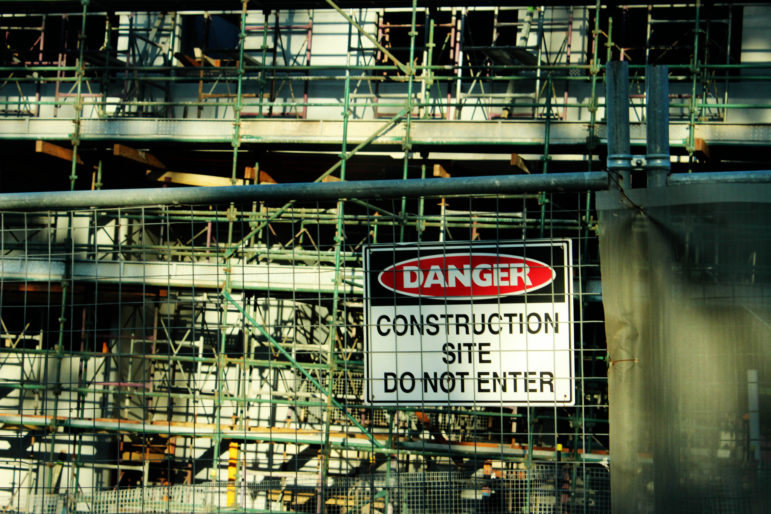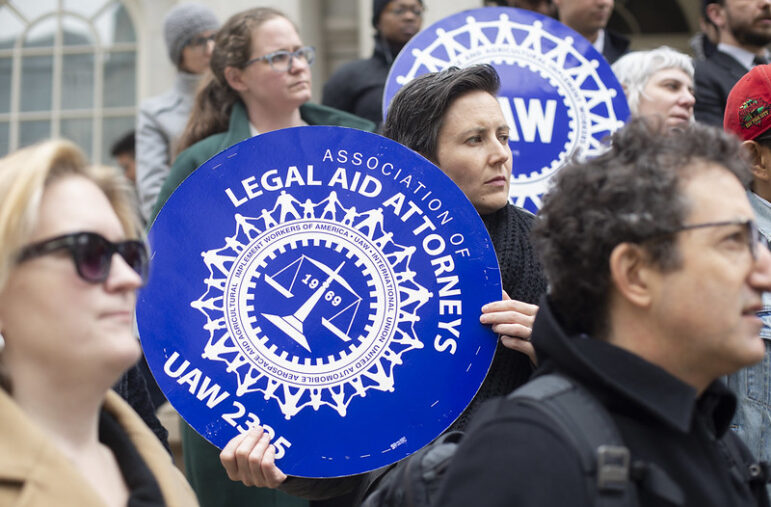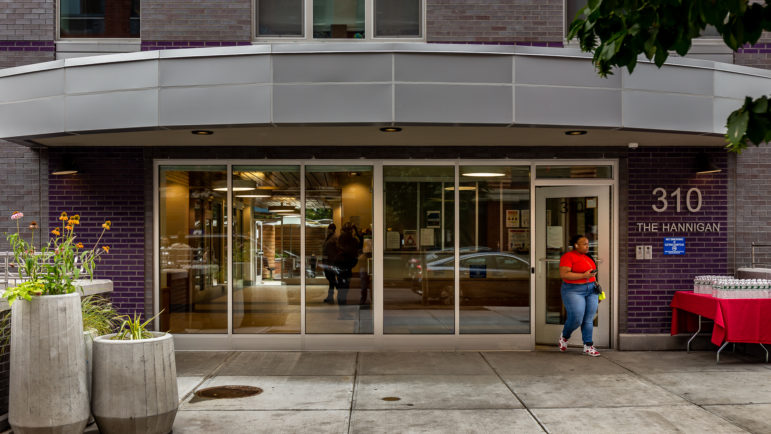
Mayor de Blasio has set laudable and ambitious goals for creating jobs and supporting minority- and women-owned businesses across New York City. But these initiatives are now at risk of being undermined by ill-conceived City Council legislation – Intro 1447 – that would significantly change the city’s construction industry.
Faith leaders and minority community advocates like myself are extremely concerned that City Council is considering a vote on Intro 1447 as early as September 7. MWBEs were unfairly left out of the discussion around this bill, which apparently went on for over a year without any outreach to our community. The result is that by the time we were given an opportunity to raise our concerns, we were already being presented with a Trojan horse of a bill that threatens to put MWBEs out of business. That is unacceptable and must change now.
Councilmembers need to go back to the drawing board on Intro 1447 and take a more comprehensive approach that actually includes the voices of minority workers and business owners. And if the mayor wants to achieve his goals for new jobs and MWBEs, he should let them know that the bill is a non-starter.
The de Blasio administration has pledged to spur the creation of 100,000 jobs over the next decade, all of which would pay at least $50,000 per year or offer a clear path to that salary level. The administration has also committed to ensuring that at least 30 percent of the total value of all City contracts are awarded to MWBEs by 2021. The initiatives are crucial because when more New Yorkers make decent wages, and more small business from all backgrounds are successful, our city becomes stronger.
But Intro 1447 would disrupt these efforts and send our city – specifically our workers and small businesses – heading in the wrong direction. It would essentially move the goal posts when it comes to qualifying for employment in New York City’s construction industry – and while it is supposed to be about safety, its proposed changes do not seem to have any sensible rationale.
Intro 1447 would require construction workers to have at least 59 hours of training, nearly six times the current requirement. This training provision is the Trojan horse around which the rest of the legislation is based. That is because a signification portion of the additional training would not even deal with safety – instead, it would be about trade skills.
Of course we want to ensure that workers are safe, just as with so many other stakeholders in the construction industry. The problem here is that there are well over 100,000 construction workers across the five boroughs, and tens of thousands of them would not be able to immediately access or afford the additional training required under Intro 1447. These workers – the vast majority of whom are New York City residents and people of color – would very likely lose their jobs.
It seems to me like it will be very difficult for the mayor to spark a net increase of 100,000 good-paying jobs if he starts by taking jobs away from thousands of construction workers.
Intro 1447 have a similar impact on MWBEs in the construction industry. That is mainly because the vast majority of MWBE contractors are emerging small businesses, with fewer financial capabilities than their competitors, and already struggle to afford the high costs of working on new projects.
The 59-hour training mandate required under Intro 1447 would only make that problem much worse. By significantly increasing costs, the bill will only widen the gap between MWBE contractors and larger, more established builders. The most troubling thing here is that this could have all been avoided if the City Council actually took the time to engage with the MWBE community for feedback before pushing this bill on us out of nowhere.
Again, it seems hard to believe that the administration will be able to meet its 30 percent MWBE contracting goals if it prevents them from succeeding in one of the city’s largest industries.
The answer here is simple. New Yorkers should look to our City Council to support much-needed initiatives like the mayor’s push for more jobs and MWBE opportunities. If City Council members are serious about helping to make those visions a reality, they need to stop Intro 1447 are start over with a real dialogue that includes our voices, too.
Reverend Jacques Andre DeGraff is a leader of the One Hundred Black Men of New York and has led the School Construction Diversity Council that sets the statewide standard for MWBE participation. He has been honored by the City of New York as MWBE Advocate of the Year.









3 thoughts on “CityViews: Bill to Boost Construction Safety Requirements Will Stymie City’s MWBE Push”
the good reverend hits it right on the head. 59 hours of safety training is unrealistic. Trade specific training should be a requirement to work on any job site. working with qualified general contractors that put ongoing safety first with all their subcontractors on every project will help us reach that safety goal. remember that there is no finish line when it comes to safety. every day is a new day but creating a culture of safety is the key! it doesn’t matter what color your skin is when it comes to safety. anyone can get hurt at any time. we all need to work together to keep each other safe.
It is very evident from the article that the Reverend has never worked on a construction site. As a construction worker for 42 years, now retired , I have witnessed many accidents. I fell once and fortunately returned to work. My son fell 5 years ago and will never to able to work on construction again. Construction workers need to highly skilled in their trade and safety. Why are construction workers treated as second class jobs. The reverend must realize all professions are constantly in need of upgrading their skills. Doctors , Lawyers and Teachers are mandated to learn new methods of safety , but the reverend sees no reason to bring them to task. Construction workers are not Neanderthals. So let safety be one more skill so they return home safe every evening.
Construction site safety is heavily regulated, and skirting the rules could result in significant fines. Should an accident occur onsite, you may be on the hook for medical bills and property damage…..not to mention a potentially significant loss of business reputation. Yikes, right? In order to mitigate this from happening to you and your company, try conducting regular safety training sessions, safety audits and compliance audits throughout the entire lifecycle of the project